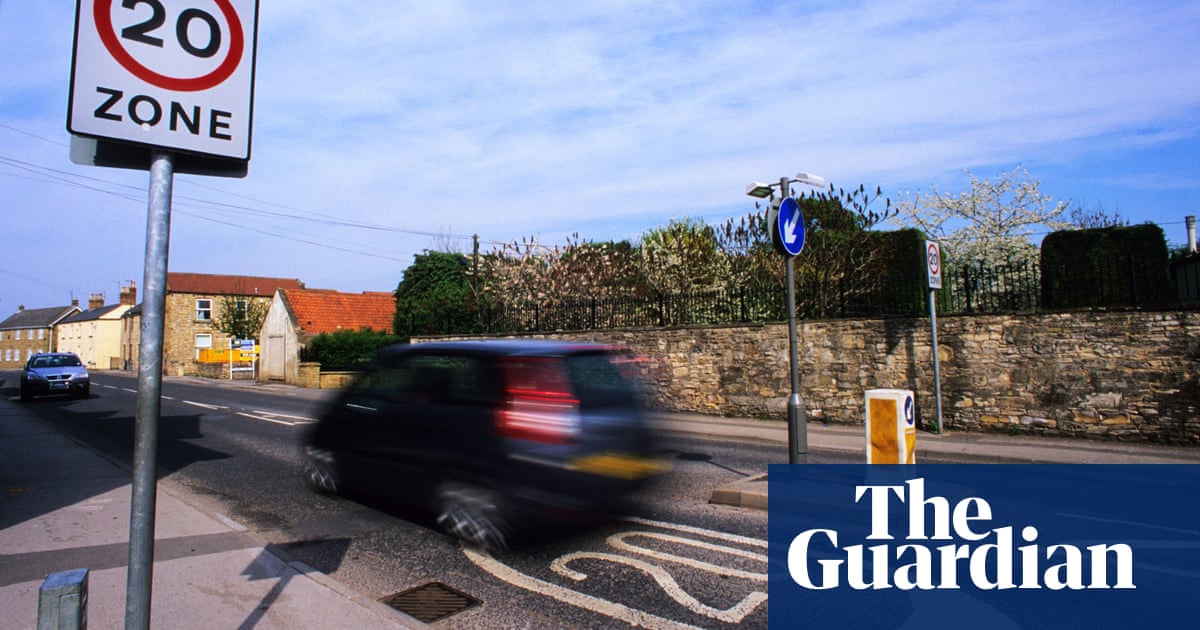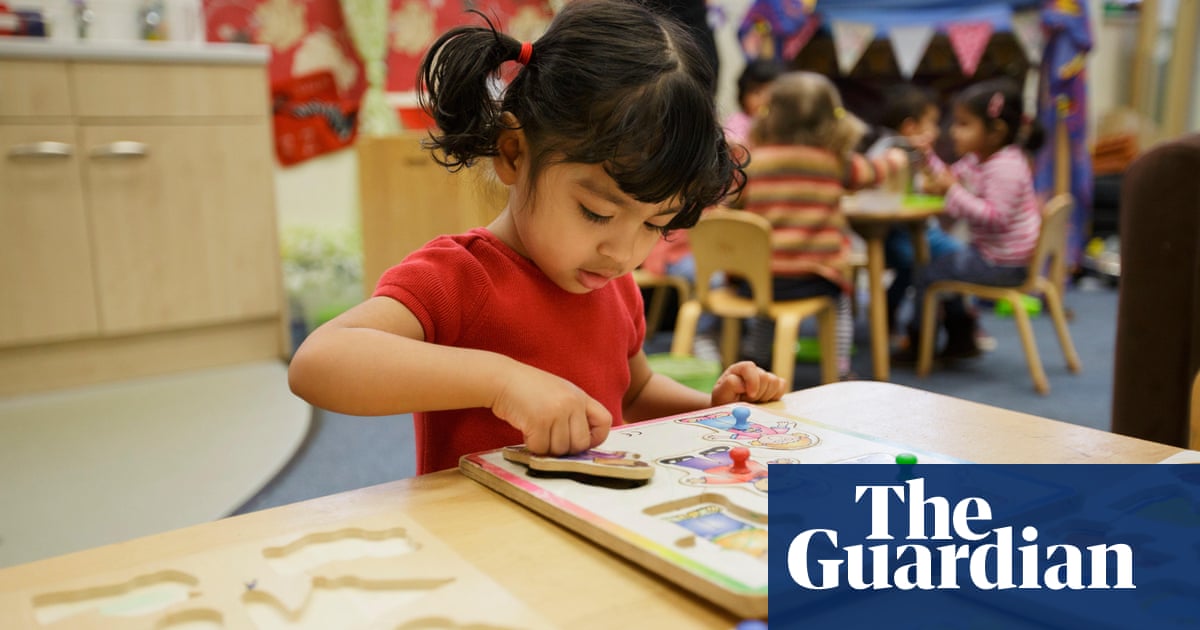
Today is Nigo’s second day at school in a new country. She is eyes down, head to head with one of the specialist staff at the Bluecoat Beechdale academy in Nottingham, poring over an English text as her language skills are assessed.
But Nigo – not her real name – isn’t new to the UK. She has been in Nottingham for 16 months since arriving here from Pakistan.
“I applied to another school but they rejected me,” she says. “And my mother was sick, so then I stayed home and looked after her and my brothers.”
Fortunately for Nigo, she did eventually make a successful application to Beechdale – but her experience is far from unique. Many of Nottingham’s secondary schools are full, and that presents real problems for pupils who arrive in the UK mid-year. Of five teenagers we meet in the school’s English as an additional language (EAL) department, not one has found a school place in less than six months.
It’s a pressing issue. Waves of refugees have come to the city in the past few years from Syria, Afghanistan and Hong Kong, and it is now preparing for new arrivals from Ukraine. In a fragmented, academised system, no one has the power to force schools to take pupils, especially if they are already full.
Nottingham’s director of education services, along with others from around England, is asking the Department for Education for assurances about the Ukrainian refugees: how will they be funded? And if some academies don’t want to take them, who will make them?
Bluecoat Beechdale academy welcomes new arrivals, whether or not they are seeking asylum. It has recently become one of the first two schools in Nottingham to be designated Schools of Sanctuary, along with another in the same trust. That means it is now part of a national network of 300 schools recognised for their work in welcoming refugees and in raising awareness of the problems facing children in the asylum system. Facilities put in place here to support refugees, along with other new arrivals, have included buddies to help them settle in, a room for prayers during Ramadan and help with uniforms.
The four pupils we meet alongside Nigo have all volunteered to be “ambassadors” for the School of Sanctuary. No distinctions are made here between refugee pupils and others, and we are not told which students are refugees. The four in the group are Hana, who is 14 and from Eritrea; Bita – not her real name – also 14 and from Iran; Abubaker, who is 13 and from Eritrea; and Angel, who’s 15 and was born in Italy, though her parents came from Ghana.
There’s a sense that having initially been rejected by the education system is a part of their shared experience.
“You have to apply and they take you through a year-long process,” Angel says. “Most schools reject you. I didn’t have a choice; you just have to go to the school that gets you admitted. Basically I stopped going to school in year 4, so I skipped two years of primary school and came straight to secondary school.”
These four have had another common experience, too: in the absence of formal lessons, they learned English from a children’s channel called Tiny Pop TV. “It was frustrating and boring, you have to stay at home all day with nothing to do,” says Hana. “We didn’t know anything about social media, so we just used to watch TV stars and learn English from them.” The others all nod – singing along with the lyrics of songs was a big help, they say. As a result, at least they arrived in school with some of the English skills they should have been taught.
There is a sense of companionship among the group, but the trust’s EAL coordinator, Cherry Pearce, is concerned others who should be here are stuck at home. She was approached recently by a local refugee charity, asking if she could provide teaching time or support for 28 Afghan children who have been living for months in hotel accommodation with their families, but she was already so overstretched she had to decline.
The city has now found school places for all these pupils, but Pearce says the system is broken. “The process seems to be one where massive obstacles are in place. If we find there’s a child at home who doesn’t have a place we can report it, but that’s all we can do,” she says. Often they find out by chance that a child is out of school: “I had a student whose cousin was in our year 9, and they brought her to the year 6 induction day. We taught her until she was old enough to start secondary.”
The problem is exercising the city’s senior education officials, along with their colleagues elsewhere.
Nick Lee, the director of education services for Nottingham city council, is full of praise for the work of the Archdale Learning Trust, of which Beechdale and the city’s other School of Sanctuary, Bluecoat Aspley, are part. But he recognises there is a wider problem.
The authority has faced challenges in ensuring refugee pupils are in school, he says. In the case of some people who have arrived from Hong Kong, it has been forced to pay for taxis to ferry them to schools under the neighbouring Nottinghamshire authority because their local schools are full. The city has also set up a unique facility to educate EAL pupils aged 14-18 after recognising they face particular problems: secondaries are reluctant to take pupils in GCSE years for fear of depressing their exam scores, and further education colleges cannot always meet the needs of those who arrive aged 16 or 17.
Lee says: “Often the response from schools is that they are full. There’s a whole host of reasons for that, but where it stems from is the fact that the local authority has not been allowed to create new schools. When a child arrives in the city as a refugee, the schools are full. The lack of central coordination of in-year admissions is a huge headache, and means children do go under the radar.”
Nottingham has a large, well-established Ukrainian community, so it is inevitable there will be new refugees arriving in the coming days and weeks. And Lee is concerned that the next group of refugees should not have to face the same problems as their predecessors.
“We still have pockets of really poor practice, and that’s what we are trying to root out and work through,” he says. “I will be talking to the DfE, and will be very strongly making the point that our secondary capacity is really, really challenged.
“Our heart goes out to them, and we want absolutely to respond and to be part of the solution. But we need help. And others will be saying exactly the same.”
Specifically, he says schools will need extra funding because they do not automatically receive money for children who arrive after an annual census date in January. And he would like to be able to work with the regional schools commissioner to direct academy schools to take pupils where necessary.
The DfE chose not to respond to his comments. In a statement, it said: “We stand with Ukraine, and we have been working at pace to launch the Ukraine family scheme, allowing families to be reunited. We are working swiftly across government to help local authorities provide the support needed for those who arrive from Ukraine.”
Back at Beechdale, Pearce fears there must already be other children in the city who have been turned down by secondary schools and who do not know where to turn. “Unless you know who to contact, the system must be completely impossible to negotiate,” she says. “It’s terrifying to think who might be slipping through the net.”












